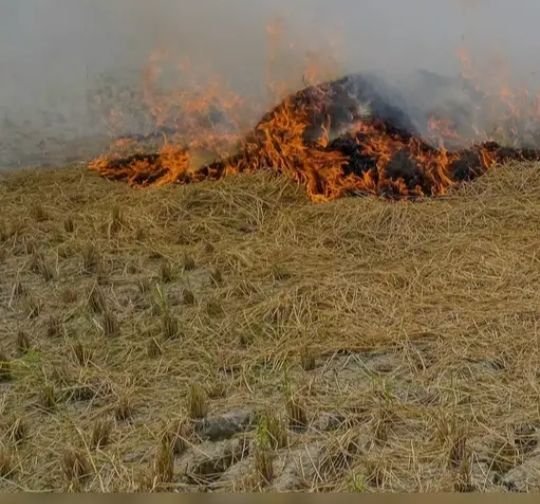
The Punjab Government has launched a comprehensive campaign to curb the recurring problem of farm fires, announcing a mix of awareness drives, street plays, wall paintings, and dedicated publicity vans to reach out directly to farmers and rural communities. The aim is to promote crop residue management (CRM) practices and reduce the harmful impact of stubble burning on the environment and public health.
According to officials, over 50 publicity vans will travel across rural areas, supported by 444 street plays and nearly 12,500 wall paintings, all carrying messages on sustainable farming practices. Alongside, more than 3,300 village-level and 296 block-level camps will be organized to give farmers access to expert advice, government schemes, and eco-friendly solutions. Asha workers will also be engaged in door-to-door outreach, ensuring families understand the long-term benefits of adopting alternatives to stubble burning.
Punjab’s Agriculture and Farmers’ Welfare Minister Gurmeet Singh Khudian emphasized that while the government is committed to tackling farm fires through awareness, compensation, and enforcement, the real change will only come when farmers and local communities actively participate. “The health of our soil and the well-being of our people is our top priority. This campaign is not just about law enforcement, but about creating a collective movement for cleaner, greener, and healthier Punjab,” he said.
Officials revealed that despite strict monitoring, eight new incidents of stubble burning were reported on Sunday, taking the season’s tally to 90 cases so far. To deter violations, FIRs have been lodged, penalties imposed, and compensation for environmental damages enforced. However, authorities stress that punitive measures alone cannot solve the crisis.
Experts have long warned that stubble burning is not only a leading cause of air pollution in Punjab and neighboring states but also damages soil fertility, reduces crop yield, and endangers human health. The government’s campaign now seeks to instill behavioral change by making farmers partners in the fight against pollution.
The success of this movement, officials say, depends on collective responsibility. While the state is deploying resources and awareness tools, farmers and citizens must unite with the administration to ensure Punjab emerges as a model state for sustainable and pollution-free agriculture.
This is a web generated news report,



